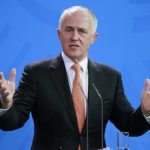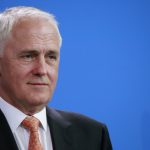Government Wants Greater Control Over Charities

The Australian Charities and Not-for-profits Commission (ACNC) was established in December 2012 to regulate nearly 60,000 charities and other not-for-profit organisations across the country.
On 7 December 2017, the federal government appointed long-time anti-charity campaigner Dr Gary Johns as commissioner of the ACNC.
The appointment was labelled “bizarre” given Dr Johns’ repeated and controversial public condemnation of charitable organisations.
No friend of charities, or the poor
In an April 2013 article, Dr Johns called charities “highly government funded” organisations, many of which do “… little or no charity work, and some do little good.”
In an April 2015 article, Johns took aim at environmental charities, questioning their eligibility to receive tax deductible donations in the face of the advocacy work they do. He pointed to WWF Australia’s campaigning against a lack of government protections for the Great Barrier Reef.
The “government should be reticent about tax assistance to organisations that seek to promote viewpoints on issues where there is reasonable disagreement in the electorate,” Dr Johns wrote. His position seems to be that a charity’s funding should be reliant on no forthcoming criticism of government.
Notably, Dr Johns’ views about campaigning for the protection of the Great Barrier Reef are at odds with those of the general public. In fact in a recent poll, 79% of Australians agreed or strongly agreed that the health of the Great Barrier Reef should be a high priority for the government.
In another article, Johns criticised beyondblue’s campaign for marriage equality. He disputed the mental health not-for-profits’ claim that discriminatory policies, such as denying same-sex marriage, lead to worse health outcomes for LGBTIQ people.
Dr Johns has also expressed the view that it should be mandatory for welfare recipients to use contraception. In December 2014, he argued that people receiving benefits should not be eligible to do so unless they use contraception, as they shouldn’t be able to procreate if they’re receiving welfare.
While in July 2015, Dr Johns caused outrage when he appeared on the Bolt Report and stated
“a lot of poor women in this country, a large portion of whom are Aboriginal, are used as cash cows right. They are kept pregnant and producing children for the cash. Now that has to stop.”
Surprise, surprise
Given his attitude toward charities and the poor, it has come as no surprise that Johns is now pushing for sweeping powers to regulate non profit organisations, including the power to determine whether their use of resources is “effective”.
The charitable sector opposes the proposal, seeing it as another way for the government to silence activist groups.
The ACNC Submission
In its submission to review charity laws, the Commission has called for amendments which require:
- “the effective use of resources of not-for-profit entities”, and
- “accountability of not-for-profit entities to donors, beneficiaries and the public”.
Response by charity sector
Opposing the submission, the charity sector points out that the law already requires strict accountability to stakeholders. It is far more concerned with the proposal to allow the ACNC to determine whether the use of donated resources is “effective”.
Community Council for Australia’s chief executive, David Crosbie, says the Commission’s proposal is “incredibly disappointing” and would lead to a “bizarre overreach”.
He highlights the fact that “no explanation” has been provided regarding how the Commission would determine “effectiveness”.
Mr Crosbie is of the view that, as long as not-for-profits are fulfilling a legitimate charitable purpose and remain accountable to stakeholders, they – rather than an anti-charity federal government body – should be able determine the application of resources.
The High Court
Legal commentators suggest that the ACNC proposal would, if accepted, seek to undermine the 2010 decision of the High Court of Australia in Aid/Watch Incorporated v Commissioner of Taxation, which found that “public debate concerning of foreign aid directed to the relief of poverty is a purpose beneficial to the community”.
In the words of one of the lawyers for the charitable organisation:
“[the] outcome makes it clear that charities can speak out fearlessly, can generate public debate and can push the government for change on issues that are relevant to the work they do – whether that be the advancement of education, eradication of poverty or the rights of refugees”.
The decision is authority for the proposition that lobbying the government for change is a “legitimate purpose” for a charity, provided of course that they nature of the lobbying is consistent with the charity’s objectives.
The concern expressed by the not-for-profit sector is that the proposed amendments will allow Dr Johns and his cohorts to dictate what is, and what is not, an effective use of resources and thereby prevent activist organisations from lobbying against the government.
Silencing activist groups
In fact, Dr Johns has publicly stated that charities such as the Australian Conservation Foundation, Amnesty International and World Vision Australia are of “doubtful public benefit” – heightening concerns Johns would seek to limit the lobbying activities of these groups if given the chance.
Labor’s charities spokesman, Andrew Leigh, believes the appointment of Dr Johns and the Commission’s current proposal are part of the Coalition’s “ongoing war on charities”.
“The Turnbull government appointed a staunch critic of the charitable sector to head the [ACNC], who now seems intent on acting like a hanging judge rather than a guiding hand”, he stated.
The broad concern, of course, is that the amendments will lead to charitable organisations who lobby for change being silenced.
Already happening
Australian charities have already reported “self-silencing” out of a fear that dissent will attract political retribution.
The recent Civil Voices report found that many charities and non-government organisations are currently censoring themselves for fear of losing government funding.
The report surveyed 1,400 people in the charity sector, finding that 65% of state-based non-government organisations (NGOs) feel restricted in what they can say publicly due to government funding agreements.
It further found that 69% of organisations feel that criticising the government, or lobbying against government policies, could lead to funding cuts, and 53% believe NGOs are pressured to amend public statements so they are consistent with government policy.
It stands to reason that the proposed changes would lead to even greater government control, and the muzzling of legitimate expression.







